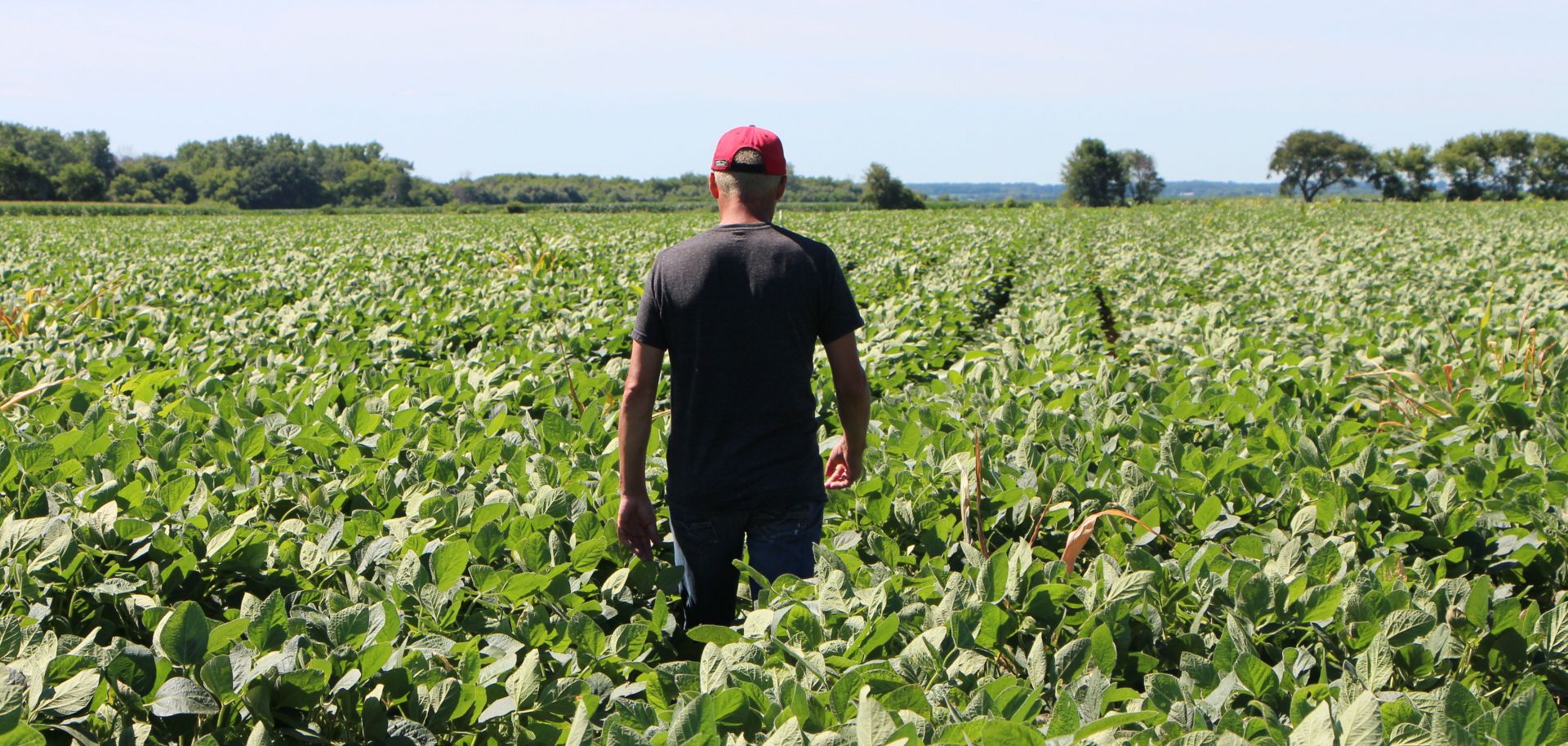ASSESSMENTS
The Agriculture Industry Is Losing Its Voice in American Politics
Aug 6, 2018 | 09:00 GMT

A farmer walks through his soy fields in Harvard, Illinois, on July 6, 2018, the same day that China hit the U.S. soybean market with retaliatory tariffs.
(NOVA SAFO/AFP/Getty Images)
Highlights
- As agriculture's contribution to overall employment declines in large part because of farm consolidation and mechanization, the political influence of agriculture lobbies will also continue to decrease.
- The U.S. government will become less protective of its agricultural sector in the long term, making it more vulnerable to market forces.
- As agriculture's political power continues to wane, farming subsidies and protections could face cuts.
Subscribe Now
SubscribeAlready have an account?
